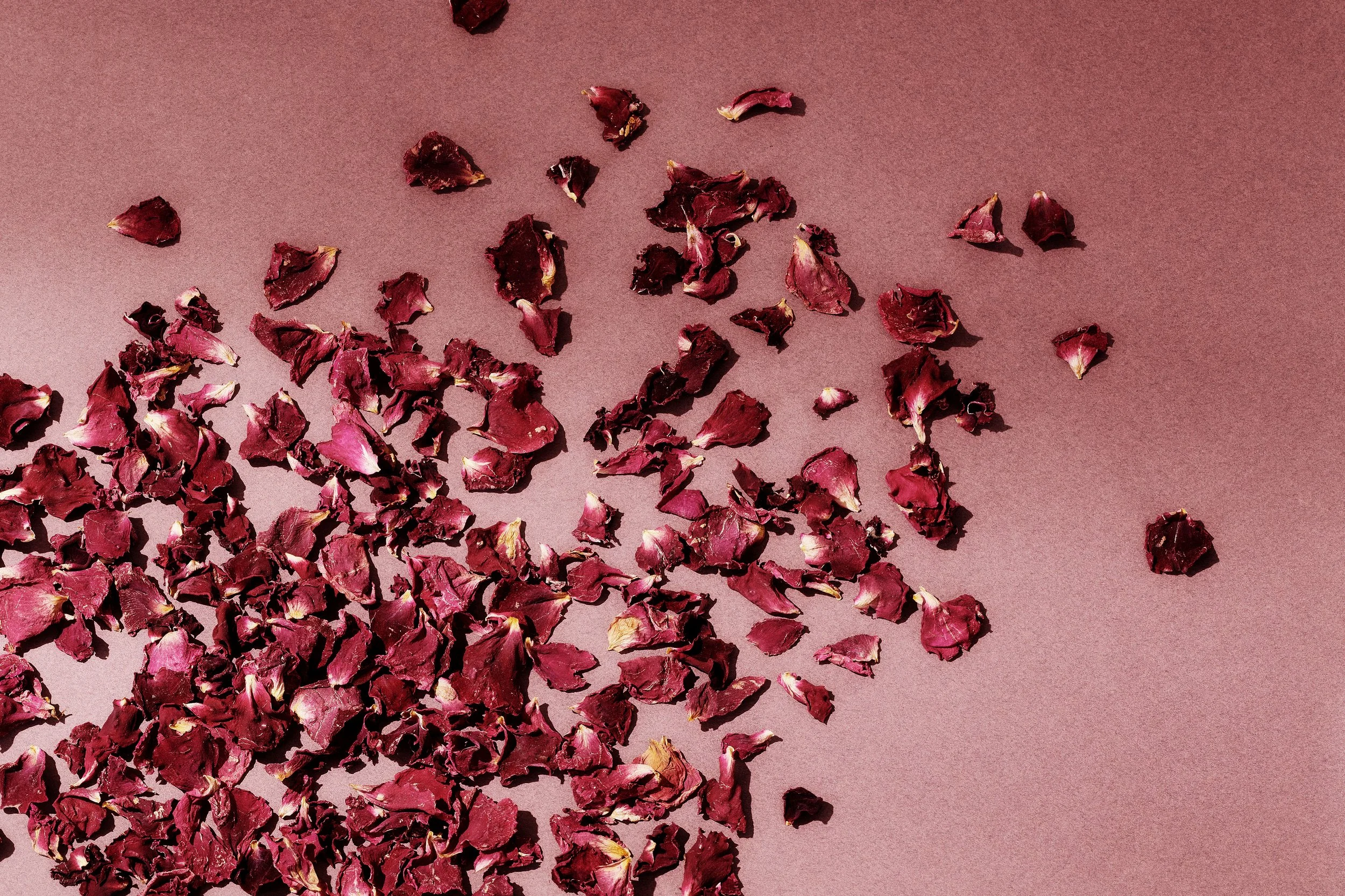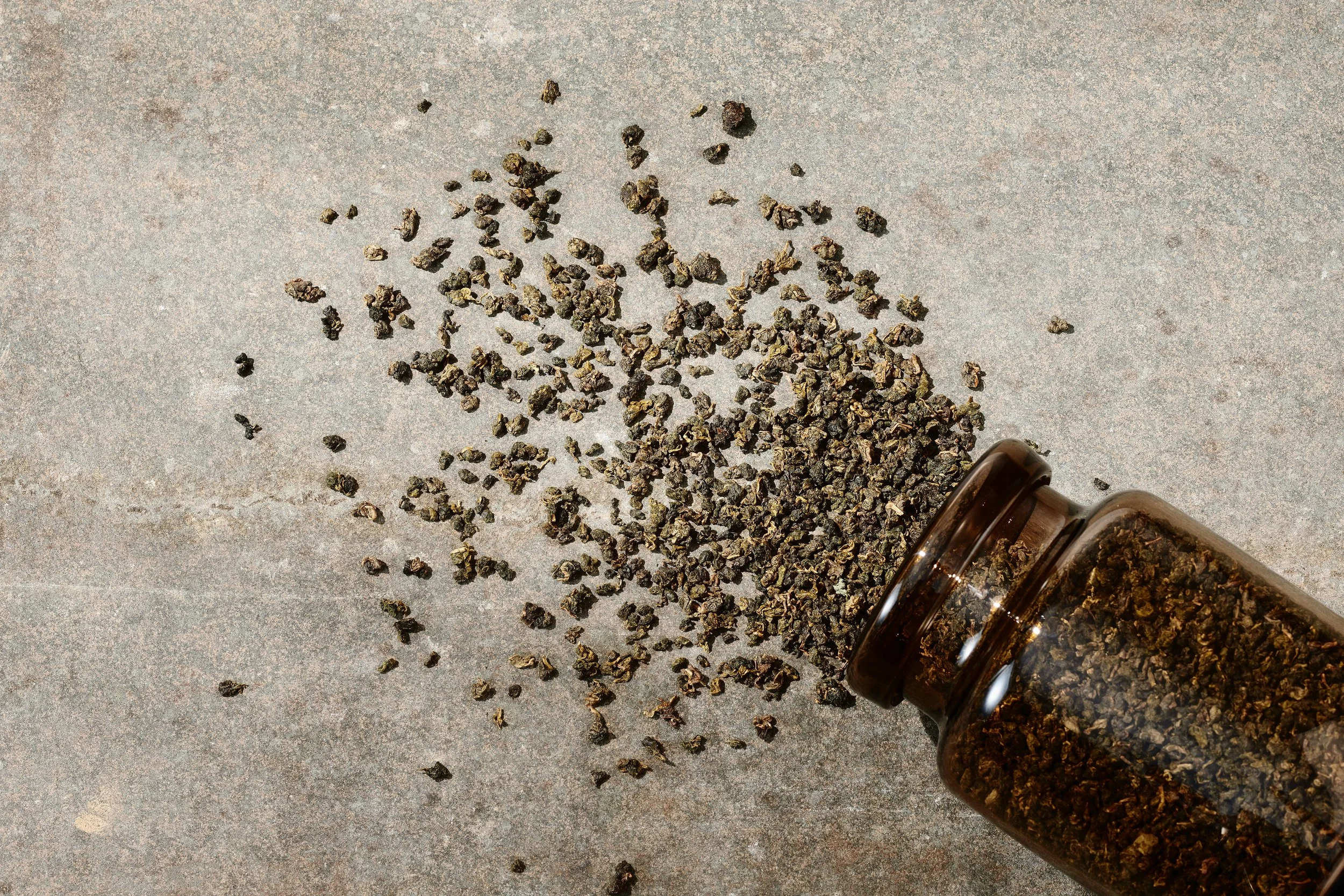From First Brew to 0.0%: The Story of København Kombucha
Nicolas Limbach in Kødbyen. Photo Ronja Bo Gustavsson, DSF
I met Nicolas Limbach, co-founder of København Kombucha, at the Kitchen Collective in Kødbyen to hear how he and Louise Benkjær Limbach built København Kombucha.
The interview was organized in collaboration with H.J. Hansen Vin, official distributor of København Kombucha.
It was a Monday in September when I walked through Kødbyen. The air was damp with rain on the concrete. I passed the old industrial buildings where butchers, wholesalers, and chefs moved quickly with crates of meat, fish, and fresh produce, before arriving at the Kitchen Collective.
Kitchen Collective is part of the beating heart of Copenhagen’s food scene, a place where young companies can test ideas and grow. It felt right that this is where I was meeting Nicolas Limbach, co-founder of København Kombucha.
Nicolas welcomed me with a big smile. He had that open, energetic look of someone who has told his story many times but still enjoys it. We found a place to sit by the big table with fridges humming in the background.
“It was her. Louise is the real entrepreneur here. She started simply with a hobby, a love for fermentation.”
It all started with Louise
Louise Benkjær Limbach. Photo: København Kombucha
Nicolas was quick to point out that the company did not start with him.
“It was her. Louise is the real entrepreneur here. She started simply with a hobby, a love for fermentation. She did a lot of classes, experimented with different things, and slowly drinks came out of it. In the beginning we thought it was a bit weird, but then we tasted it and said, "Wait, this is actually good.”
Louise Benkjær Limbach had fallen deep into the world of fermentation. First food, then drinks. She tried all kinds of things, and soon kombucha became the main focus.
Then came the coincidence that gave the whole project a push.
“She met Francis Cardenau by accident. He was the first two-star Michelin chef in Denmark. He is everywhere in the food scene here. He told Louise, why don’t you come and use my kitchen? He had just moved north of Copenhagen and had a big space. So she did. They carried in pallets of bottles through his garden. That was the very beginning.”
I could see Nicolas smiling when he told me this.
The real turning point came in 2019 when they sent the kombucha to the Sol over Gudhjem competition.
Editor's note: (Since 2014, Sol over Gudhjem has celebrated the country’s finest local products from hundreds of small producers and passionate gastronomes, in the categories of Food, Drink, and Confectionery, along with an Innovative Product of the Year that highlights creations with strong future potential.)
“That contest is not easy to win. There are hundreds of entries, but in 2019 Louise won. At that time we didn’t even have a company yet.”
“We were really one of the first ones to make fermented drinks without alcohol for fine dining. Suddenly we were there, and we had to decide what to do with it.”
Photo: København Kombucha
Step by step growth
After the win Louise moved production into a factory space together with Rebæl Juice.
“At first we had just a small corner. Then a bigger part. Then we took over the whole factory. She was producing there for three or four years. We sold a lot to Coop, to Irma.”
But then came the pandemic and the energy crisis.
“That was tough. Irma started closing fridges to save energy. But our kombucha had to be cooled, because it was alive, with probiotic bacteria. If it was not cooled it could explode. That was a big problem.
“They all need a true 0.0. In Europe non-alcoholic can be 0.5. But for many that is not enough.”
From private equity to fermentation
Louise Benkjær Limbach & Nicolas Limbach Photo: København Kombucha
Nicolas’ own background is very different from fermentation.
“I was in private equity. Before that I worked for many years in the building material industry, at Rockwool and then Velux, where I headed a division of 1200 people. Then I helped to build a new growth fund. But the market turned, the money was not there anymore. So I had time, and I got drawn into this project.”
At first he was just helping. But slowly he became hooked.
“I found a partner in Germany, because if you want to sell more than 20,000 bottles you cannot close them by hand. A line like that costs a million euro. So we worked with a partner who became like family. He also brought new know-how. Together we managed to ferment all the way down to 0.0.”
The challenge of 0.0%
I asked Nicolas how they managed to reach true zero alcohol, when most kombuchas still contain a little. He laughed and leaned forward.
“Part of it is a secret. We don’t use chemicals. It is a natural process. Kombucha has two fermentations. First yeast turns sugar to alcohol. Then bacteria turn alcohol to acidity. The second fermentation is normally not strong enough to reach zero. So we had to train our bacteria, make them stronger, like athletes in high-altitude training. Every batch we test, because when we promise 0.0 it has to be true.”
For him it is not only about technique. It is also about trust.
“There are pregnant women, people with health issues, people with religious reasons. They all need a true 0.0. In Europe non-alcoholic can be 0.5. But for many that is not enough. When you go to a supermarket you see people picking up bottles, turning them around, checking the label. They need to be sure.”
“Bee pollen has a broad aroma, because bees collect from many plants. It also gives a mineral feeling.”
Copenhagen as identity
When I asked why the brand is so tied to Copenhagen, Nicolas explained it with enthusiasm.
“Why do we need to import everything from far away? We can use what grows around us. It is a bit the Noma idea. Rosehip, lavender, bee pollen. We look at nature around Copenhagen and ask, what can we do with this?”
It is not only about ingredients, but also about style.
“Copenhagen is fun, stylish, and full of creativity. This is where we started, and it is part of us. I may be French and German, but I feel Copenhagen. That is why we use the name.”
And there is also Louise, who is from Copenhagen herself. This is another reason why the city is at the very heart of their identity
“That is one of the successes. Your children, your grandmother, my aunt Gertrud: everyone can drink it. Suddenly you have all generations at the table.”
København Kombucha. Photo: Ronja Bo Gustavsson, DSF
The kombuchas
On the table in front of us, Nicolas lined up three bottles. Each one carried its own character and story.
First, Hidcote Blue, the lavender, the one that won Sol over Gudhjem.
“People never guess it is lavender. They taste ginger, apple, apricot. Only later do they realise. That is what we want. It should be defined by fermentation, not just by the ingredient. We recommend it with umami dishes, soy, miso, aubergine, pork, chicken.”
Then the Bee pollen.
“Bee pollen has a broad aroma, because bees collect from many plants. It also gives a mineral feeling. People say it tastes like straw. We recommend it with seafood.”
Nicolas Limbach in Kødbyen. Photo Ronja Bo Gustavsson, DSF
And finally the Rosa Rugosa.
“It has red fruit aromas, strawberry, raspberry. It works beautifully with dessert and cheese.”
He explained that the sweetness levels are slightly different, from 3.7 to 4.5 grams, giving more dryness or more roundness depending on the food pairing.
“A lot of wine people love it. At wine fairs wineries come to me and say, this is very close to what we do. It starts with tea, yes, but it is what you do with it that makes the difference.”
Breaking old ideas about kombucha
“Many have tasted kombucha before and thought, this is not something for dinner. Too sour, too bitter. So we need to show them that our kombucha is balanced. It is not about replacing wine, but about giving an alternative. The non-alcoholic movement is not going away. Just as restaurants learned to offer vegetarian dishes, they must learn to offer real non-alcoholic pairings.”
For Nicolas, the beauty of kombucha is that it brings people together.
“That is one of the successes. Your children, your grandmother, my aunt Gertrud: everyone can drink it. Suddenly you have all generations at the table. Of course, some are sceptical. Why pay so much for something without alcohol? But when they taste it, they understand.”
He believes sommeliers also have a responsibility in this shift.
“Right now many only offer something if the guest asks. That is not enough. They need to be proactive. It takes practice. You cannot be good at it after one try. You need to offer it 50 times before it feels natural. And that is what needs to change.”
And in the end, it always comes down to taste.
“Denmark is at the forefront of non-alcoholic premium drinks. Many ask me, why are there so many good drinks from Copenhagen? ”
The bigger picture
As we talked, Nicolas opened up about the bigger changes in drinking culture.
“There was a study done in Denmark and three other countries. It showed that 50 percent of people aged 15 to 30 do not drink anymore. Half. Compare that to restaurant menus where everything is wine. The market will change, very dramatically. People are becoming alcohol flexitarians. They drink some wine, some beer, but not six glasses in one night. They want variety.”
For him this is not about fighting against wine.
“I am an alcohol flexitarian myself. I drink both. The point is, do I need six glasses of wine on a Saturday? Maybe four is enough. Then what do I drink with the rest of the food? Water, Coke? Or something that also excites me? That is where we come in.”
Photo: København Kombucha
Exports and the Danish scene
København Kombucha is already well beyond Denmark.
“We export 60 to 70 percent. To Germany, Holland, Belgium, France, Austria, Switzerland, Czech Republic, and the UK. Denmark is still our base, but the growth is outside.”
Still, he is proud of the Danish scene.
“Denmark is at the forefront of non-alcoholic premium drinks. Many ask me, why are there so many good drinks from Copenhagen? It is the food culture here, the Noma effect, the accelerators. But we must defend this position. Other countries are waking up. We need to keep improving.”
A personal journey
As our conversation came to an end, I asked Nicolas what it means for him personally to be in this business now.
“I never thought I would end up here. I was a consultant, a manager, in private equity. But once you work for your own company you work all the time. And it feels good. I am doing what I love.”







